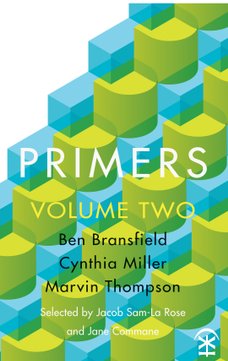What are your thoughts on comedians using the N word?
from ‘An Interview with Comedy Genius Olivier Welsh’
There’s a documentary with only nine views
that explains how the N-word spawned from a need
to dehumanise people of a dark hue
so cotton profits would feel less like greed
or sin. The word’s history is not well known.
Its US uses are born from complex battles
but when it’s packaged as an endearment I groan:
it still points to people owned as cattle.
With Pryor though, ‘nigger’ assumed beauty
which gave high fives to civil rights and shame.
Like joking about his own heart attack,
it gave him scope to poke fun brutally
at a land where folk sing Christ while crosses flame.
Compared to Pryor, all my jokes fall flat.
a) Firstly: The Story
After watching the Richard Pryor documentary Omit the Logic, I was left with a desire to translate the comedian’s professional life into a poem. I was also struck by the fact that, during a 1979 trip to Kenya, he had an epiphany and stopped using the N-word in his stand-up routines. For some fans, that made him less funny.
Tommy Mann is the comedy creation of Olivier Welsh who, in turn, is my creation. I have told their stories in a seven sonnet corona. In these sonnets, Olivier Welsh answers questions from an un-named interviewer.
b) Secondly: Historical Context
‘Injustice anywhere is a threat to justice everywhere.’ Martin Luther King Jr. 1963.
When my parents took their first breaths in Jamaica, they were filling their lungs with air owned by Britain. Like many empires before it, the British Empire was a machine for making money. It was also a machine for making death.
In London, my parents grew into a new world. In this new world, Civil Rights protests were igniting America, Rastafarianism was re-configuring Christianity with an African focus and the West Indies cricket team was using discrimination as fuel to train harder, train harder and win everything. To this 1960s / 70s mix, add Apartheid.
As a child, I would walk to Broadwater Farm Primary School in Tottenham with my mother and brothers. One October morning, as we neared our school’s playground, burnt out cars sat quietly on kerb-sides. The night before that morning walk, flames ran rampant in the adjacent housing estate. Below the high-rise homes, a protest against Cynthia Jarrett’s death and the way many (but not all) police officers were treating Black people turned into a riot. Lives were lost.
c) Structure
I am a habitual writer of sonnets. During the re-drafting of my sonnet sequence, I asked myself, ‘Is a European poetic form the best fit for a story about a Black British comedian who feels history weighing down on his back?’ Then I reminded myself: European poetic forms are human forms.
Draft after draft, the sonnets resisted my efforts to turn their iambic pentameters into longer poetic lines. The poems wanted to be part of the iambic pentameter’s British theatrical tradition. Perfect – Tommy Mann is pure theatre!
d) Mood
There is a flat, matter-of-fact tone to the opening line of my N-word sonnet: ‘There’s a documentary with only nine views’.
e) Imagery
The flat tone is undercut with images of death: ignite / battles / heart attack / Christ / cross / flame.
f) Language
When writing poems, I use alliteration, assonance and consonance with a hope that my words will be elevated to music. Ultimately, I am trying to emulate jazz musicians such as John Coltrane and Joe Harriott. These musicians made beauty out of discord.
g) Effect
Through the work of Richard Pryor, I have learnt that great art is often unsettling. If my N-word poem unsettles a few readers, I will be glad.
Some of the videos I watched whilst researching, writing and editing part 4 of my Olivier Welsh sonnet sequence (beware the strong language in some of the clips).
Chris Rock’s opening monologue for the Oscars, 2016
Kendrick Lamar’s performance at the Grammy Awards, 2016
‘Subject’ by The Joe Harriott Quintet
Grapevine – a debate about African Americans and the N-word
 Marvin Thompson has followed his family’s tradition of migration (his parents were born in Kingston, Jamaica) by moving from London to South Wales. As a child, he was read Anansi stories and 1984. Without these literary experiences, he may never have developed a love for narrative that led him to study an MA in Creative Writing. His poems and sequences have appeared in a number of magazines. These include Poetry Wales, Wasafiri and Poetry Review. Influences such as Howard Hodgkin, James Baldwin and John Coltrane attest to his interest in a wide range of art forms.
Marvin Thompson has followed his family’s tradition of migration (his parents were born in Kingston, Jamaica) by moving from London to South Wales. As a child, he was read Anansi stories and 1984. Without these literary experiences, he may never have developed a love for narrative that led him to study an MA in Creative Writing. His poems and sequences have appeared in a number of magazines. These include Poetry Wales, Wasafiri and Poetry Review. Influences such as Howard Hodgkin, James Baldwin and John Coltrane attest to his interest in a wide range of art forms.
Primers Volume Two is available from Nine Arches Press.
Add your Reply
You must be logged in to post a comment.